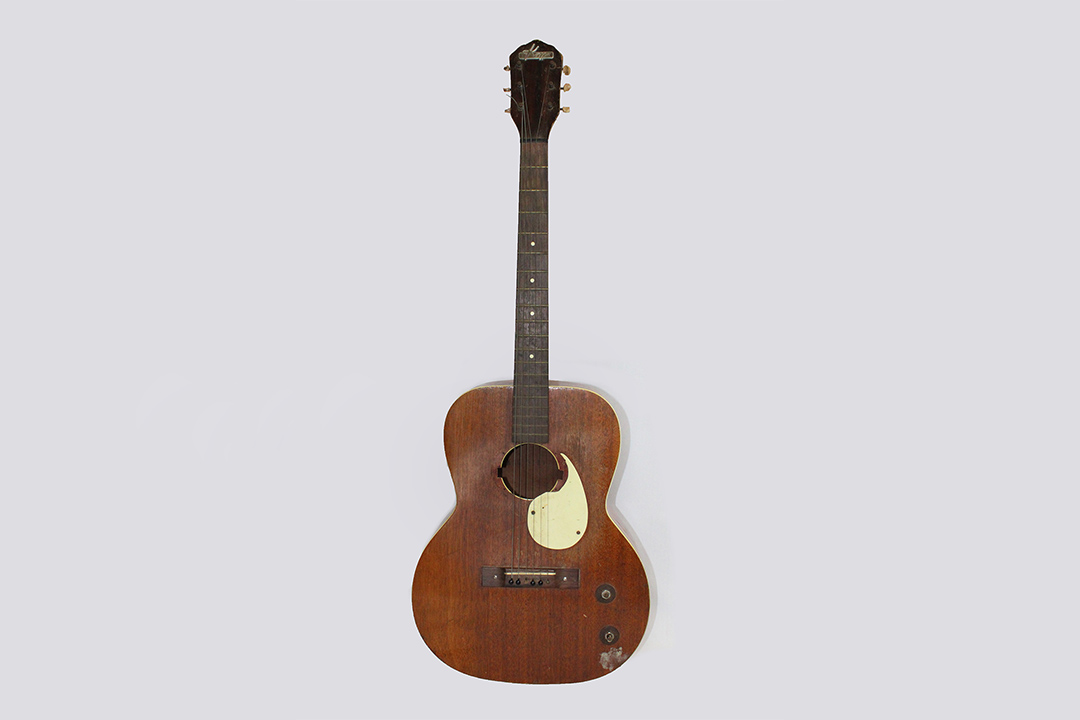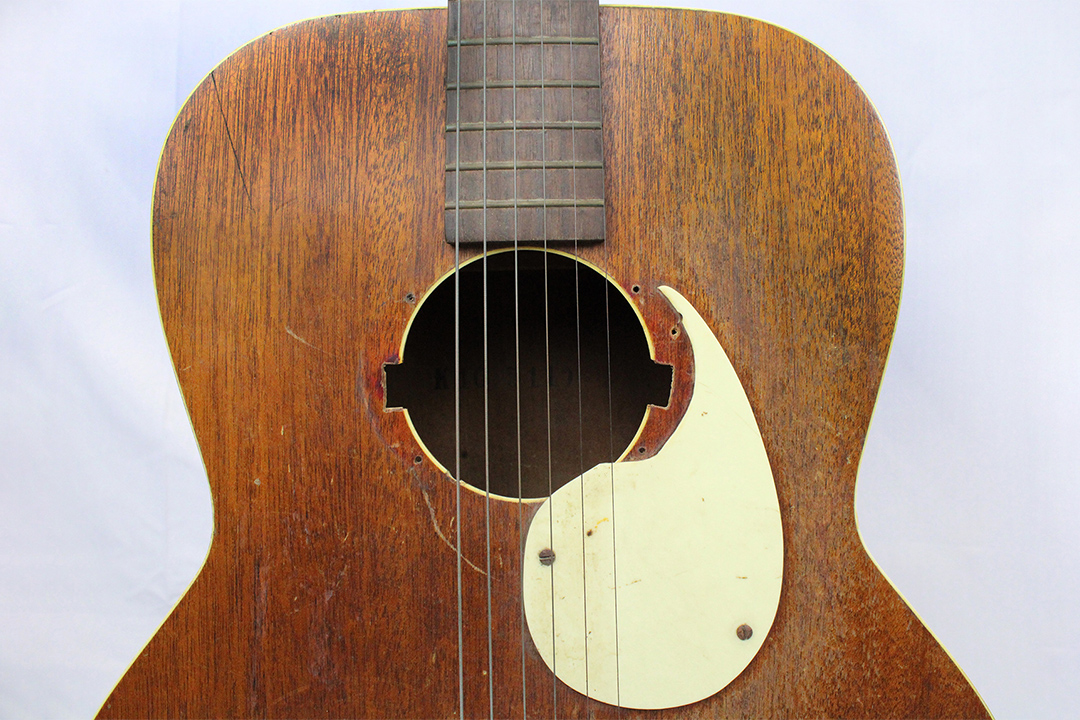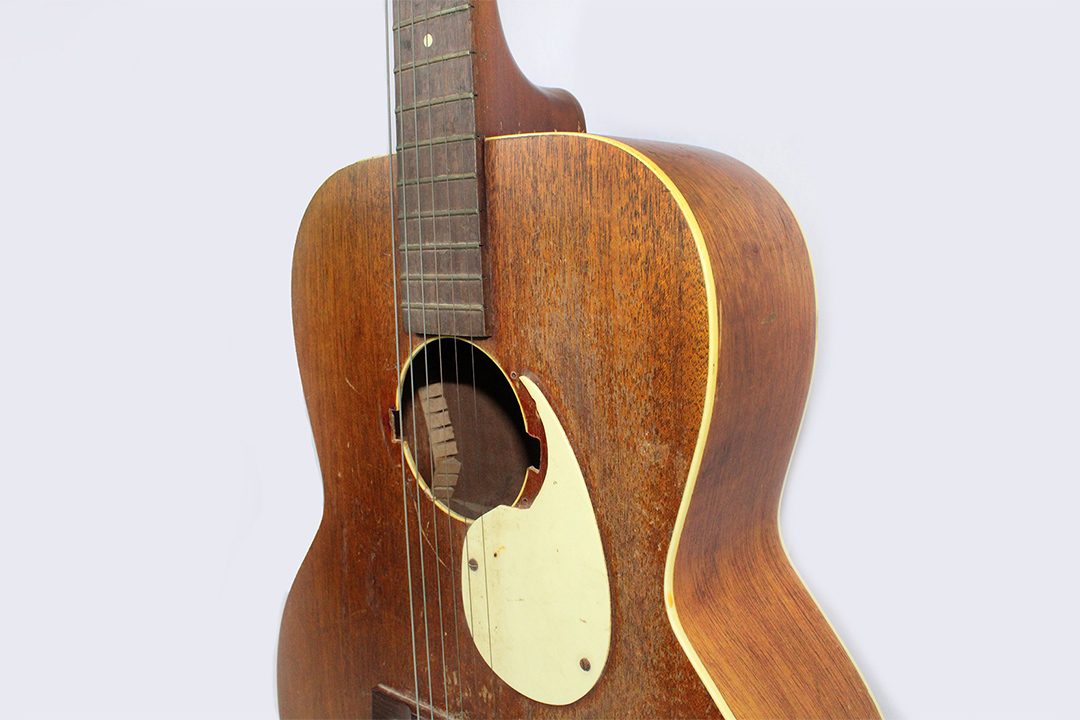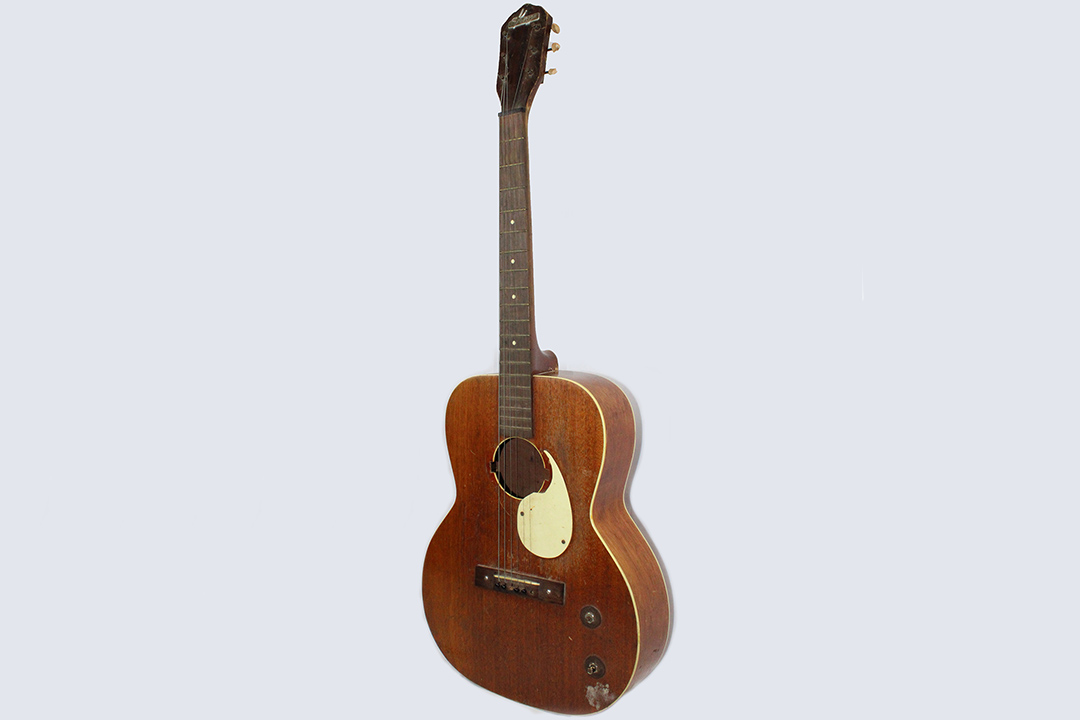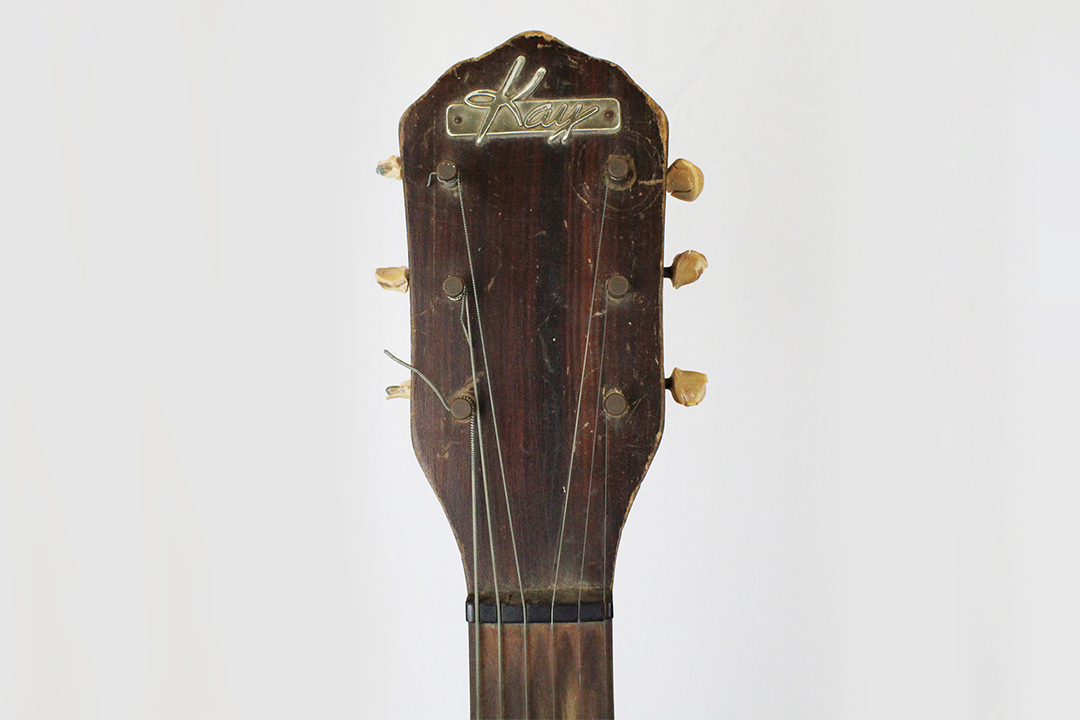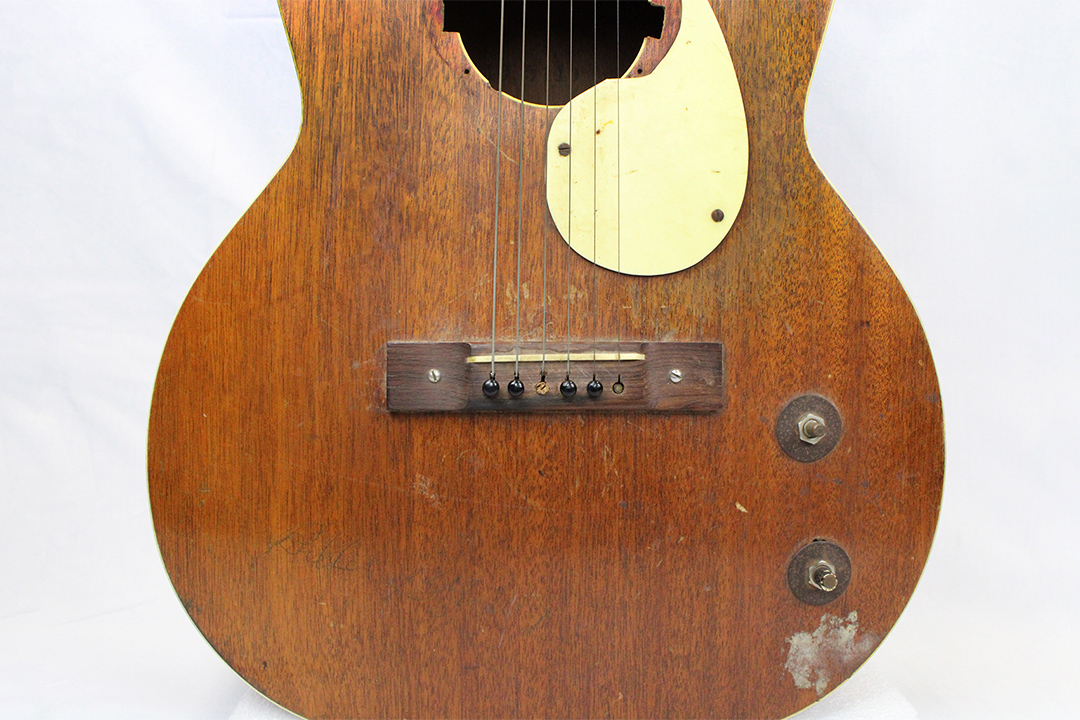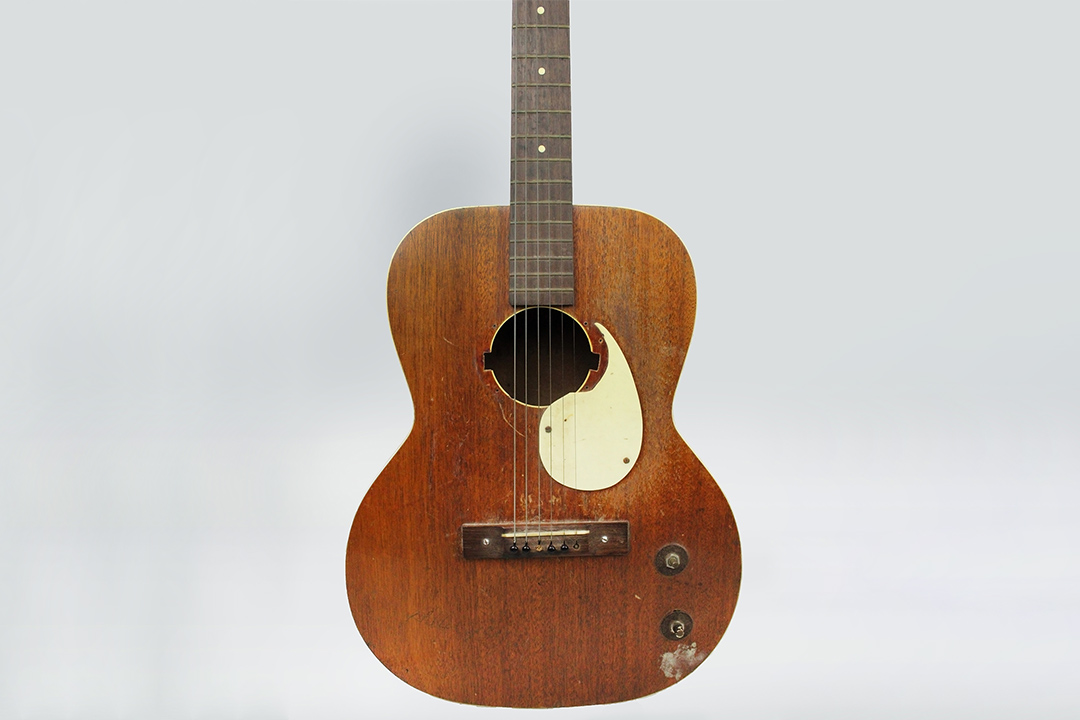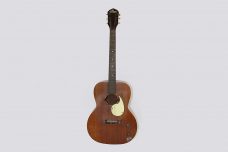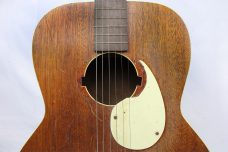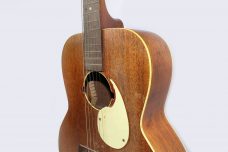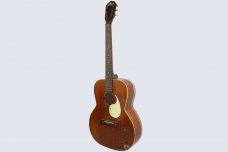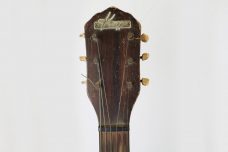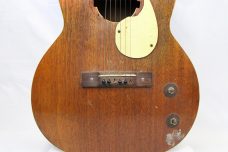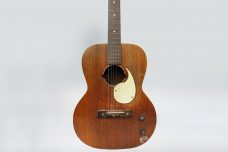Spotlight on Lightnin’ Hopkins
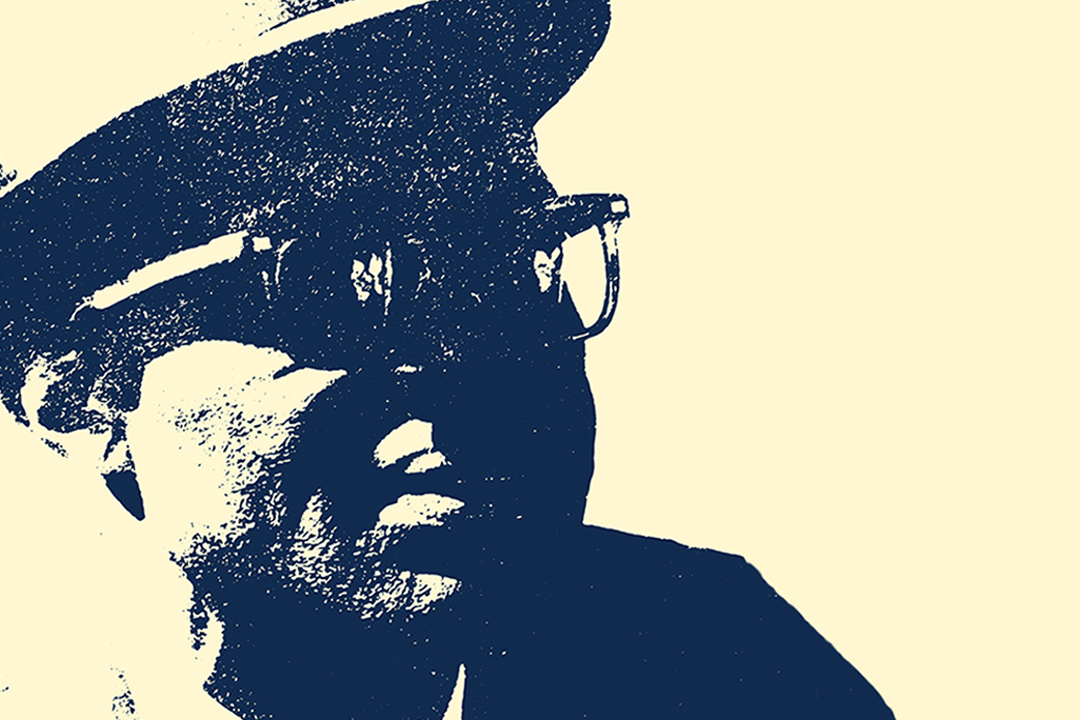
Sam Hopkins was born in Centerville, Texas, in 1912. When he was eight years old, a chance meeting with foundational bluesman Blind Lemon Jefferson at a church social was the beginning of a decades-long career. With his mentor, Hopkins began playing local picnics and evening gigs, working on a cotton farm with his family during the day. As an adult, he made his way to Houston, where his alliance with pianist Wilson “Thunder” Smith gave him his own stage name: Lightnin’.
Hopkins played dance parties, socials and clubs in Houston and around East Texas for the next several decades, supplementing his income with field work when necessary. He experienced a few episodes of relationship strife and a stint on a chain gang (though some historians regard this as a “tall tale”)—naturally, these memories grew into songs. In the late 1940s, his music career picked up and he signed his first record contract. This was far from a big break, however, as record companies rarely guaranteed royalty payments. To establish a measure of ownership and security over his work, Hopkins demanded cash payment after every song performed in a recording session.
“Lightnin’ change when Lightnin’ want to change”
Lightnin’ Hopkins
Hopkins didn’t like to travel much, and his recordings waned during the 1950s. But in the 1960s, as the folk music revival emerged and the civil rights movement picked up momentum, blues got big. Hopkins, Mance Lipscomb and other foundational bluesmen enjoyed their own personal renaissances. Now, in their middle age, they were playing with Pete Seeger and Bob Dylan and headlining music festivals across the United States. Hopkins was also the star of a documentary from filmmaker Les Blank, The Blues Accordin’ to Lightnin’ Hopkins, where he sings and discusses the blues from his hometown of Centerville. He took well to his status as a blues legend, developing a reputation for being a sharp, at times unpredictable performer who enjoyed his command of the stage. “Lightnin’ change when Lightnin’ want to change,” he’d tell his band when he held onto a riff longer than they expected.



